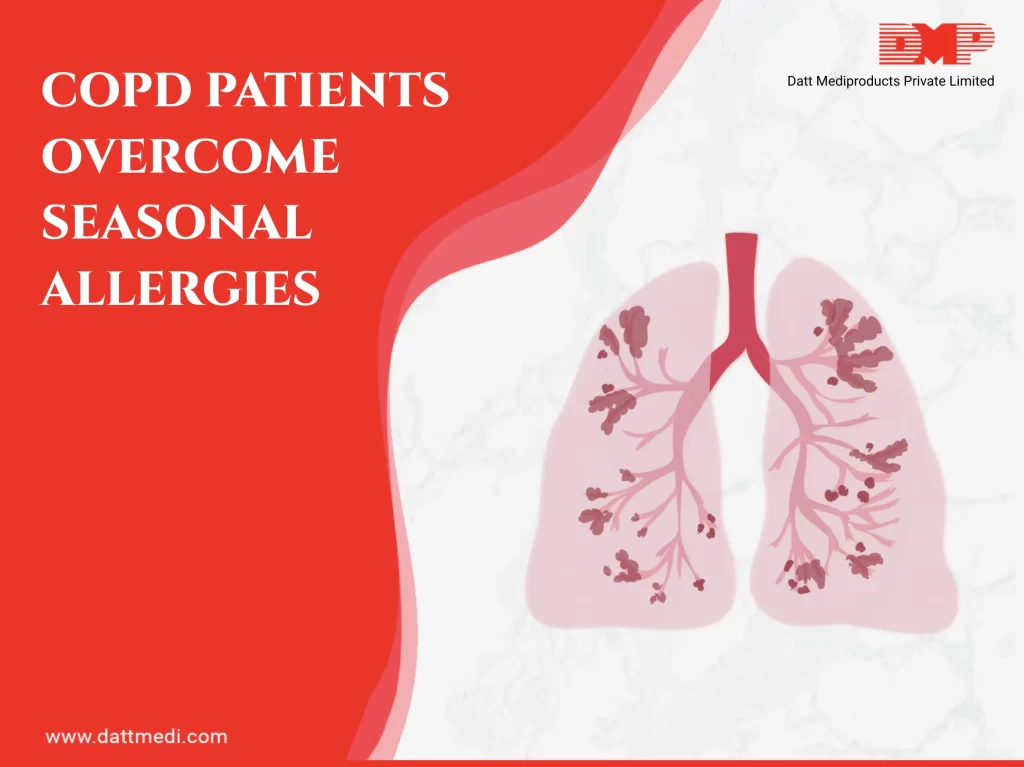
COPD stands for Chronic Obstructive Pulmonary Disease and is a chronic inflammatory lung disease that can cause obstructed airflow from the lungs. Symptoms include wheezing, coughing, mucous production and fatigue often causing serious breathing difficulties.
Majority of people are affected by allergies caused by the change of season. Allergens such as dust, pollen, moulds and pet dander may cause allergic rhinitis, commonly called hay fever.
Data published in International Journal of Hygiene and Environmental Health highlights that allergic rhinitis affects 10%–30% of adults and 20%–25% of children worldwide, and the number is increasing due to urbanization, climate change and air pollution.
Allergies and COPD patients
Person suffering from COPD is susceptible to other respiratory problems and the situation aggravates when seasonal allergies come into play. Season change in combination with pollution
causes the allergens to invade the body more aggressively. So it becomes really important to understand the risk factors and what all steps should be taken to overcome seasonal allergies for COPD patients. Follow the below mentioned steps to reduce contact with allergens and avoid COPD symptoms worsen.
Take a Test
Consult a doctor about allergy symptoms and how seasonal allergies affect COPD symptoms. It is crucial to disclose the medical history with the consultant, so that appropriate physical assessment may be carried out. An allergy test is carried out to find out which allergens cause reaction.
Clean your Surroundings
Cluttered and messed up living places give room to dust and allergens.
Cleaning the house daily is a great job, but some extra efforts like vacuuming and dusting regularly must be done to clutter-free your home and lower the risk of allergens.
Furthermore, pollen and dust particles get stuck to our clothes when we go outside. So, to avoid allergies it is advisable to take a shower and change clothes and shoes once we return home.
Make Use of an Air Purifier
Using air purifiers in home and work spaces lowers the allergens level
in the atmosphere. The HEPA and ULPA filters trap very fine particles such as pollen, dander and dust present in the surrounding air. Furthermore, it is crucial to clean and change the filters (whenever required) to ensure proper function of the purifier.
Avoid Smoking
Cigarette smoke is the most common cause for COPD. Some people are highly
sensitive to cigarette smoke, and COPD symptoms get exacerbated when they get exposed to the smoke. So it is advisable to quit smoking and avoid second hand smoke to reduce the risk.
Stay Indoors
Allergies are very strong at certain times of the year. So, people with COPD should limit their exposure to these allergens and avoid going out unless required. And always wear a face mask to keep away allergens and avoid unnecessary respiratory symptoms.
Take OTC Medicines
Antihistamines relieve most of the symptoms related to COPD. However,
bronchodilators and anti-inflammatory medicines may also be used (as advised by the physician) to stop the immune system from responding against any allergen. If the above medications still don’t work it is advisable to see the doctor for allergy testing. Generally, a skin test is carried out to find out which allergens are causing the reaction.
Immunotherapy
Allergy shots (Immunotherapy) is also an option to have long term relief from
allergy symptoms. This therapy aims in making the body less sensitive to the allergens. Small doses of allergens are injected into the body and the dose is later gradually increased. This helps the body to build a natural defence system against the allergens. At times, allergy shots may be life threatening (anaphylaxis), always inform the specialist of the signs and symptoms of the severe reaction, so that he may adjust the dose accordingly.
American College of Allergy, Asthma & Immunology states that immunotherapy reduces symptoms in 85% of people with allergic rhinitis.
Reduce Pet Dander
Pet animals like cats, dogs and rabbits shed dead skin called dander that triggers allergic reaction. People with pet allergies should avoid contact and exposure to pet dander. It is advised, to frequently clean the furniture, carpets and clothes and wash hands immediately if the person is in direct contact with the animals.
We @dattmediproducts understand that allergens often complicate the life of COPD patients, following the above tips will help to deal with seasonal allergies. Above all don’t forget to seek a medical assistance in case of any emergency







